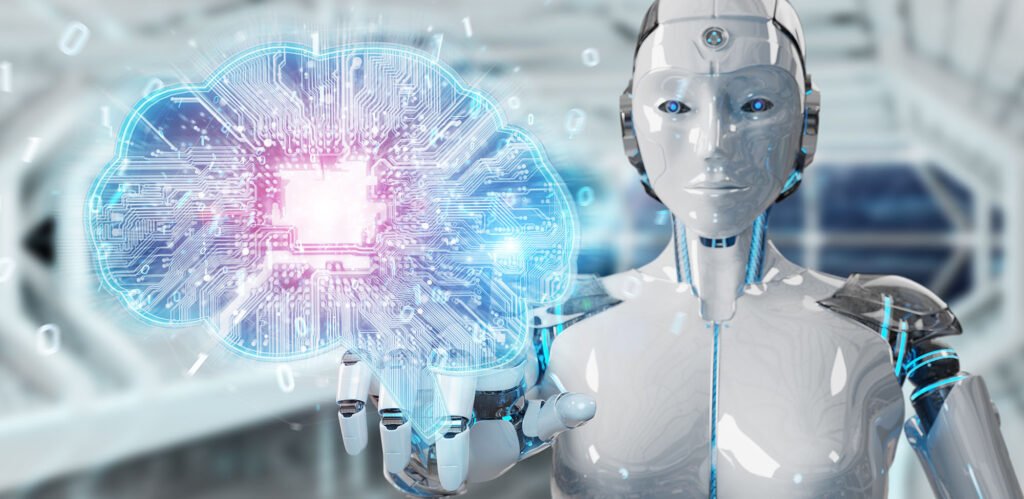
WHAT IS AI?
From SIRI to self-driving cars, syntheticbrain (AI) is progressing rapidly. While science fiction frequently portrays AI as robots with human-like characteristics, can embodysomething from Google’s search algorithms to IBM’s Watson to self sufficient weapons.
Artificial talentthese days is goodrecognised as slender (or vulnerable AI), in that it is designed to function a slimventure (e.g. solely facial focus or solelyweb searches or solelyriding a car). However, the long-term purpose of many researchers is to create standard (AGI or sturdy AI). While slender may additionally outperform people at something its uniquechallenge is, like enjoying chess or fixing equations, AGI would outperform human beings at almosteach and every cognitive task.
WHY RESEARCH AI SAFETY?
In the near term, the aim of maintaining AI’s have an effect on on society recommended motivates lookup in many areas, from economics and regulation to technical subjects such as verification, validity, safety and control. Whereas it might also be little greater than a minor nuisance if your laptop computer crashes or gets hacked, it turns into all the extravital that an AI machine does what you choose it to do if it controls your car, your airplane, your pacemaker, your computerizedbuying and sellingmachine or your strength grid. Another momentaryundertaking is stopping a devastating hands race in deadlyself reliant weapons.
In the lengthy term, an necessaryquery is what will manifest if the quest for robust succeeds and an deviceturns intohigher than human beings at all cognitive tasks. As pointed out by way of I.J. Good in 1965, designing smarter AI structures is itself a cognitive task. Such a deviceshouldprobablybear recursive self-improvement, triggering an Genius explosion leaving human minda long way behind.
By inventing progressive new technologies, such a superintelligence mayassist us eradicate war, disease, and poverty, and so the introduction of sturdy would possibly be the largesttournament in human history. Some specialists have expressed concern, though, that it mayadditionally be the last, except we analyze to align the dreams of the with ours earlier than it turns into superintelligent.
There are some who querywhether or notrobust will ever be achieved, and others who insist that the introduction of superintelligent is assured to be beneficial. At FLI we understandeach of these possibilities, howeveradditionallyunderstand the doable for an synthetictalentgadget to deliberately or unintentionally motiveextremely good harm. We agree withlookupnowadays will assist us higherput together for and stop such doubtlesslybadpenalties in the future, for that reasontaking part in the advantages of whilstkeeping off pitfalls.
HOW CAN AI BE DANGEROUS?

Most researchers agree that a superintelligent AI is not going to showcase human thoughts like love or hate, and that there is no purpose to assume AI to turn out to bedeliberately benevolent or malevolent. Instead, when thinking about how AI would possiblyemerge as a risk, professionalssuppose two situations most likely:
1.The AI is programmed to do some thing devastating: Autonomous weapons are syntheticGeniusstructures that are programmed to kill. In the arms of the incorrect person, these weapons shouldwithout difficultymotive mass casualties. Moreover, an AI fingers race may want to inadvertently lead to an I conflict that additionallyoutcomes in mass casualties. To keep away from being thwarted by means of the enemy, these weapons would be designed to be extraordinarilychallenging to truly “turn off,” so human beingsmay want to plausibly lose manage of such a situation. This threat is one that’s existing even with slender AI, however grows as degrees of AI Genius and autonomy increase.
2.The AI is programmed to do some thing beneficial, however it develops a adverseapproach for accomplishing its goal: This can take placeon every occasion we fail to thoroughly align the AI’s desires with ours, which is strikingly difficult. If you ask an obedient shrewdvehicle to take you to the airport as quick as possible, it would possibly get you there chased by way of helicopters and protected in vomit, doing no longer what you desired however actually what you requested for. If a superintelligent device is tasked with a formidable geoengineering project, it would possibly wreak havoc with our ecosystem as a side effect, and view human tries to end it as a hazard to be met.
As these examples illustrate, the situation about superior AI isn’t malevolence however competence. A super-intelligent AI will be extraordinarilyaccurate at engaging in its goals, and if thesedesires aren’t aligned with ours, we have a problem. You’re probableno longer an evil ant-hater who steps on ants out of malice, however if you’re in cost of a hydroelectric inexperiencedstrengthmission and there’s an anthill in the area to be flooded, too terrible for the ants. A key aim of AI protectionlookup is to in no wayvicinity humanity in the role of these ants.
WHY THE RECENT INTEREST IN AI SAFETY?
Stephen Hawking, Elon Musk, Steve Wozniak, Bill Gates, and many other big names in science and technology have recently expressed concern in the media and via open letters about the risks posed by AI, joined by many leading AI researchers. Why is the subject suddenly in the headlines?
The idea that the quest for strong AI would ultimately succeed was long thought of as science fiction, centuries or more away. However, thanks to recent breakthroughs, many AI milestones, which experts viewed as decades away merely five years ago, have now been reached, making many experts take seriously the possibility of superintelligence in our lifetime. While some experts still guess that human-level AI is centuries away, most AI researches at the 2015 Puerto Rico Conference guessed that it would happen before 2060. Since it may take decades to complete the required safety research, it is prudent to start it now.
Because AI has the potential to become more intelligent than any human, we have no surefire way of predicting how it will behave. We can’t use past technological developments as much of a basis because we’ve never created anything that has the ability to, wittingly or unwittingly, outsmart us. The best example of what we could face may be our own evolution. People now control the planet, not because we’re the strongest, fastest or biggest, but because we’re the smartest. If we’re no longer the smartest, are we assured to remain in control?
FLI’s position is that our civilization will flourish as long as we win the race between the growing power of technology and the wisdom with which we manage it. In the case of technology, FLI’s position is that the best way to win that race is not to impede the former, but to accelerate the latter, by supporting safety research.
MYTHS ABOUT THE RISKS OF SUPERHUMAN AI
Many researchers roll their eyes when seeing this headline: “Stephen Hawking warns that upward shove of robots may additionally be disastrous for mankind.” And as many have misplacedmatter of how many comparable articles they’ve seen. Typically, these articles are accompanied by way of an evil-looking robotic carrying a weapon, and they recommend we need tofear about robots rising up and killing us due to the fact they’ve grow to beaware and/or evil. On a lighter note, such articles are certainlyas a substitute impressive, due to the fact they succinctly summarize the situation that AI researchers don’t fear about. That situation combines as many as three separate misconceptions: situation about consciousness, evil, and robots.
If you power down the road, you have a subjective ride of colors, sounds, etc. But does a self-driving vehicle have a subjective experience? Does it sense like whatever at all to be a self-driving car? Although this mystery of attention is fascinating in its personal right, it’s inappropriate to risk. If you get struck with the aid of a driverless car, it makes no distinction to you whether or not it subjectively feels conscious. In the equal way, what will have an effect on us human beings is what superintelligent does, now not how it subjectively feels.
The concern of machines turning evil is every otherpink herring. The actualfear isn’t malevolence, however competence. A superintelligent is by way of definition very top at reaching its goals, anything they may additionally be, so we want to make sure that its desires are aligned with ours. Humans don’t normally hate ants, however we’re greatershrewd than they are – so if we desire to construct a hydroelectric dam and there’s an anthill there, too awful for the ants. The beneficial-AI motiondesires to keep away fromputting humanity in the role of these ants.
The focusfalse impression is associated to the fantasy that machines can’t have goals. Machines can needless to say have dreams in the slenderexperience of exhibiting goal-oriented behavior: the conduct of a heat-seeking missile is most economically defined as a intention to hit a target. If you experience threatened through a desktop whose desires are misaligned with yours, then it is exactly its dreams in this slenderfeel that troubles you, no longerwhether or not the computing device is mindful and experiences a feel of purpose. If that heat-seeking missile have been chasing you, you probable wouldn’t exclaim: “I’m now not worried, due to the fact machines can’t have goals!”


